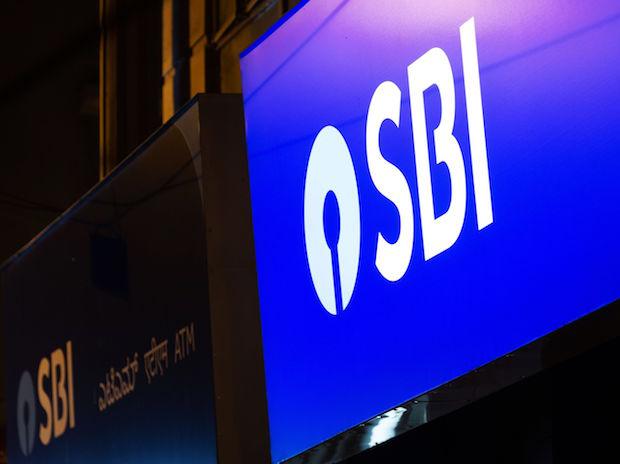The Reserve Bank of India’s intervention in the currency market and other measures have created so much liquidity in the system that some banks are extending long-term loans to corporate entities below bond market rates, even repo rate – that is unsustainable – State Bank of India’s (SBI’s) economic research unit has warned.
Stating the issue as a 'peculiar conundrum’, State Bank of India (SBI) Group Chief Economic Advisor Soumya Kanti Ghosh wrote in his report that even some 15-year-old bank loans were given at a negative spread of 60-70 basis points over equivalent rated corporate bonds.
Part of the reason for this is that high-rated companies float bids for getting competitive pricing to meet their loan requirements, and banks bid. Saddled with huge liquidity and no avenue to lend, banks are outbidding each other to offer rates lower than bond market rates.
"Such type of irrational pricing, because of abundant liquidity, can impact banking sector profits and initiate asset liability mismatch, if the spread is more prevalent for lower-rated borrowers, a sure recipe for financial instability in the future,” Ghosh wrote.
Ghosh also pointed out to reports that even AA-rated borrowers (lower than the top-rated AAA) were being provided repo rate-linked loans at near 6 per cent interest rate. "This indicates that lenders could be indulging in risk underpricing; any adverse movement in interest rates could impact bank profitability and hard-earned financial stability,” Ghosh said.
Analysts concur, saying some large public-sector banks and private banks were engaging in the practice.
The ultra-low rates have spurred corporates to raise funds from the bond market. Short-term rates, in particular, are being raised at below the prevailing repo rate of 4 per cent. But the long-term bond rates have also fallen substantially. For example, Nabard this week priced a 15-year bond at 6.59 semi-annual coupon. IRFC priced a 20-year bond at 6.85 per cent annual.
“Investors will definitely have mark-to-market losses over the tenor of these bonds,” said a bond arranger. This is because the rates will not remain this soft in the coming years, and if the market yields rise, the investors in these bonds have to value the bonds with the prevailing rates and incur a loss.
According to SBI Research, the average surplus liquidity so far this calendar year has been Rs 4.15 trillion, and RBI’s dollar purchase has contributed to this liquidity. While the RBI intervenes in the foreign exchange market to contain excessive volatility, the continuous intervention is making the central bank’s job harder. In the current financial year, till September, the RBI has made net dollar purchases of $43.6 billion, and has accumulated $93 billion in forex reserves so far. This is close to the record forex accumulation of $110 billion in 2007-08. Such dollar purchases this year are contributing more to the liquidity. But the market is positioning itself to a possible stronger rupee, as portfolio flows remain strong at $18 billion so far this year.
As a result, “overall, merchant dollar supply is far higher than demand as they anticipate a stronger rupee and may hence be holding to long position in dollars."
Other economists concur with the view that there is a limit to how much reserves the RBI can accumulate. Ultimately, the dollars will have to be deployed in low-yielding treasury assets, which bring down the RBI’s interest income. Besides, a stronger rupee also brings down imported inflation. SBI doesn't see inflation coming below 5 per cent before March next year.
Therefore, the consensus among economists is that at some point the central bank would stop intervening in the rupee and let it appreciate. Most in the currency markets, however, don’t expect a hurried appreciation in the short run. The rupee closed at 74.01 a dollar on Wednesday, against its previous close of around 73.90 a dollar, as local equities corrected.
 Dear Reader,
Dear Reader,
Business Standard has always strived hard to provide up-to-date information and commentary on developments that are of interest to you and have wider political and economic implications for the country and the world. Your encouragement and constant feedback on how to improve our offering have only made our resolve and commitment to these ideals stronger. Even during these difficult times arising out of Covid-19, we continue to remain committed to keeping you informed and updated with credible news, authoritative views and incisive commentary on topical issues of relevance.
We, however, have a request.
As we battle the economic impact of the pandemic, we need your support even more, so that we can continue to offer you more quality content. Our subscription model has seen an encouraging response from many of you, who have subscribed to our online content. More subscription to our online content can only help us achieve the goals of offering you even better and more relevant content. We believe in free, fair and credible journalism. Your support through more subscriptions can help us practise the journalism to which we are committed.
Support quality journalism and subscribe to Business Standard.
Digital Editor

RECOMMENDED FOR YOU